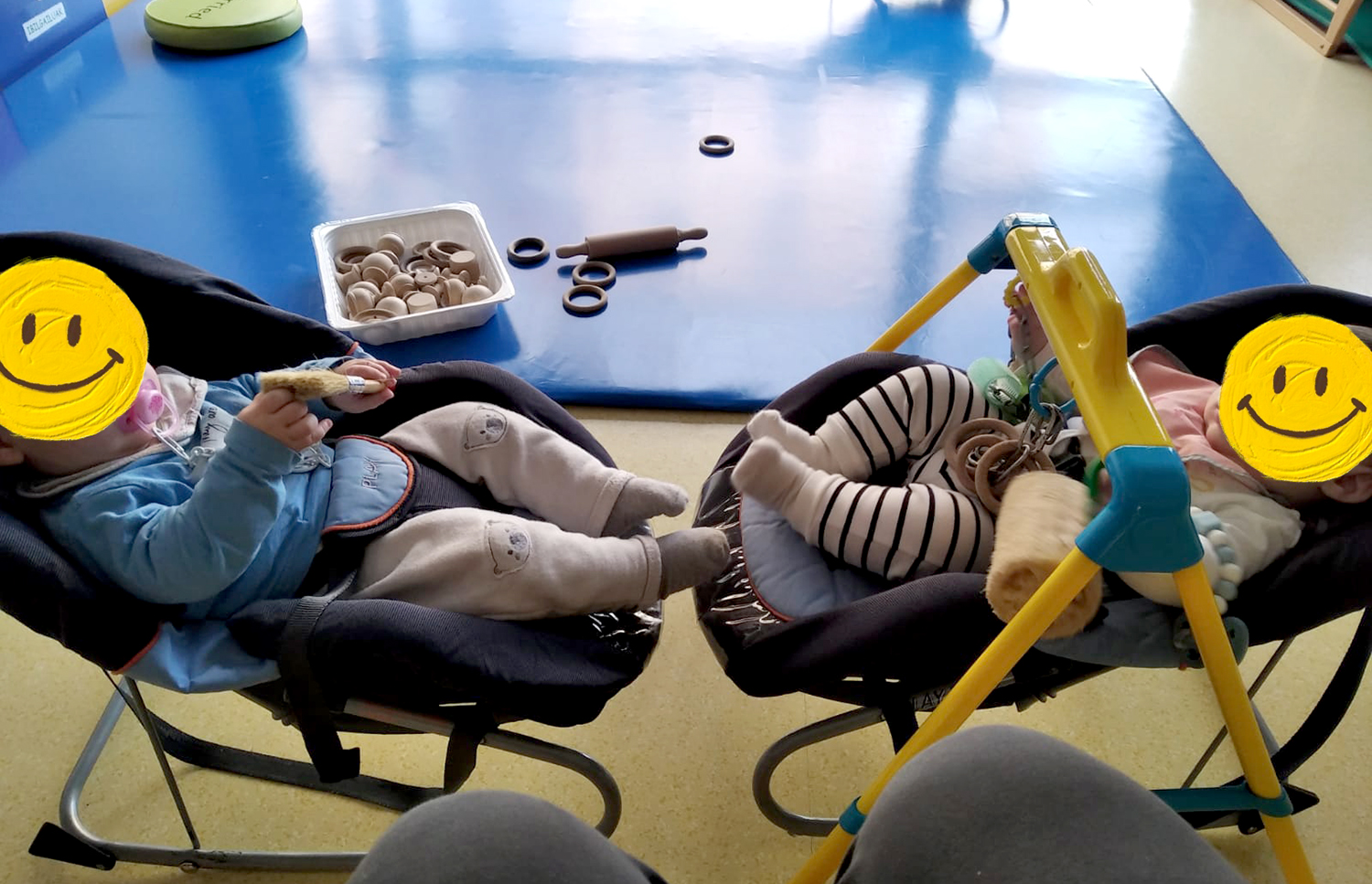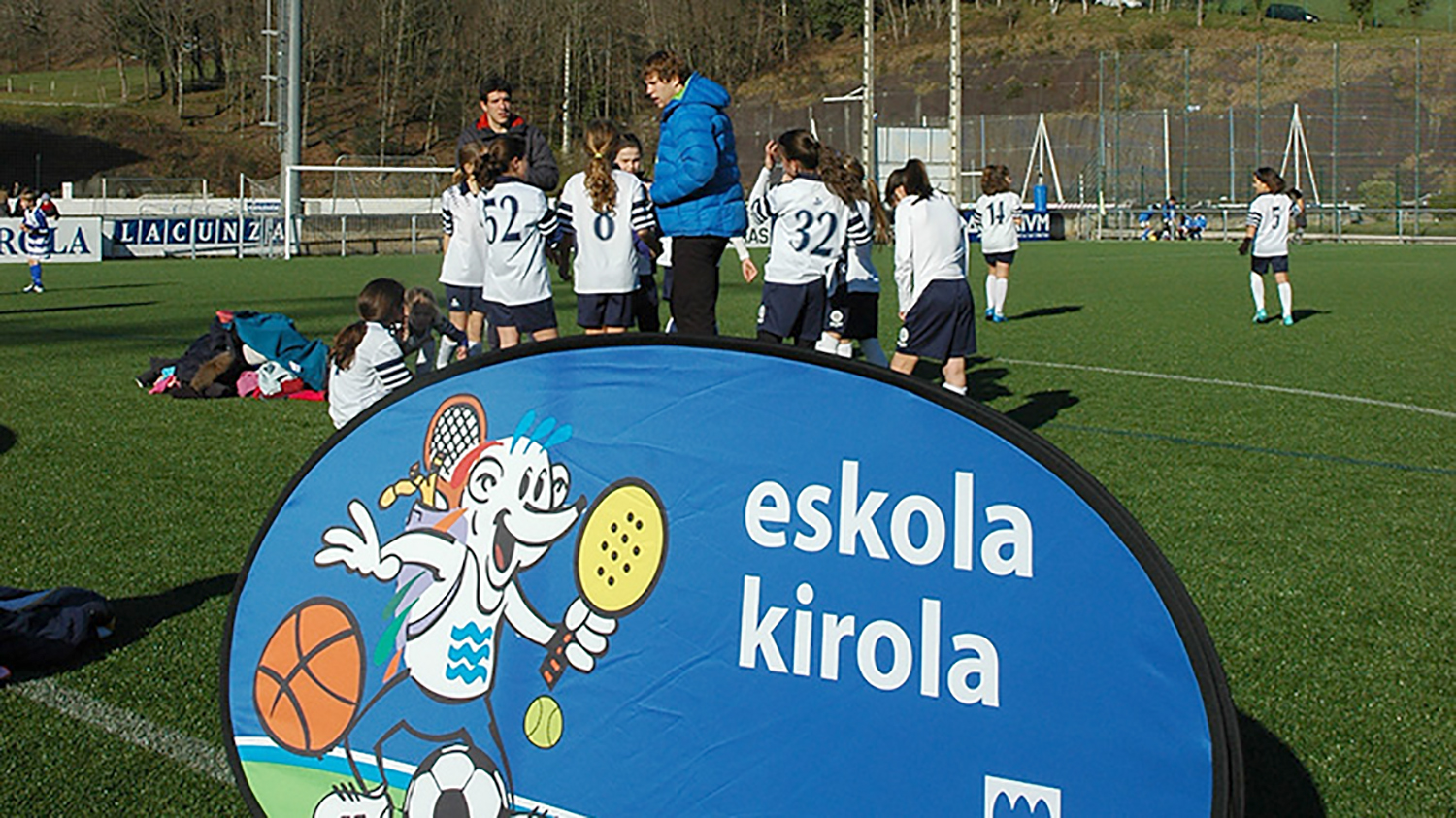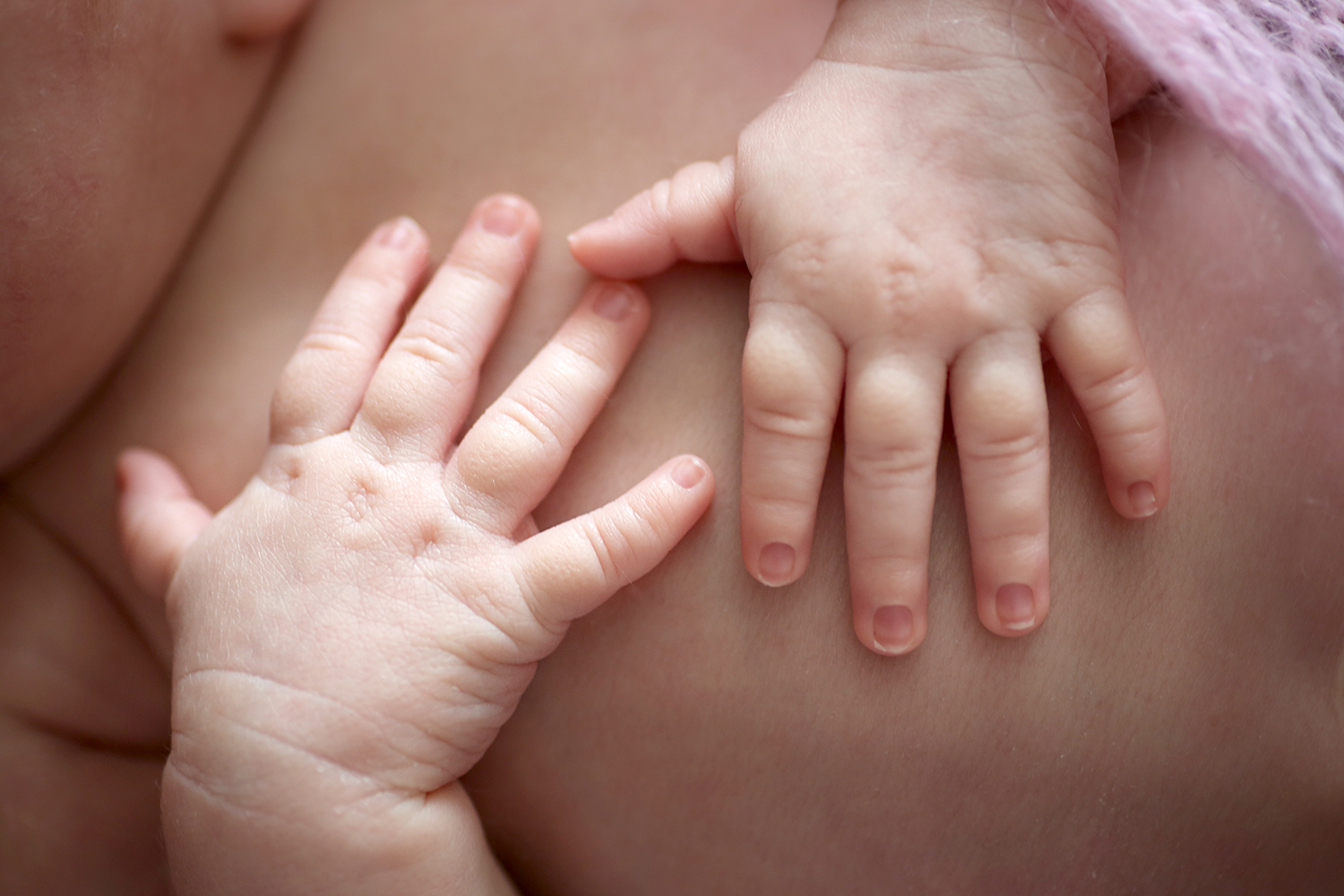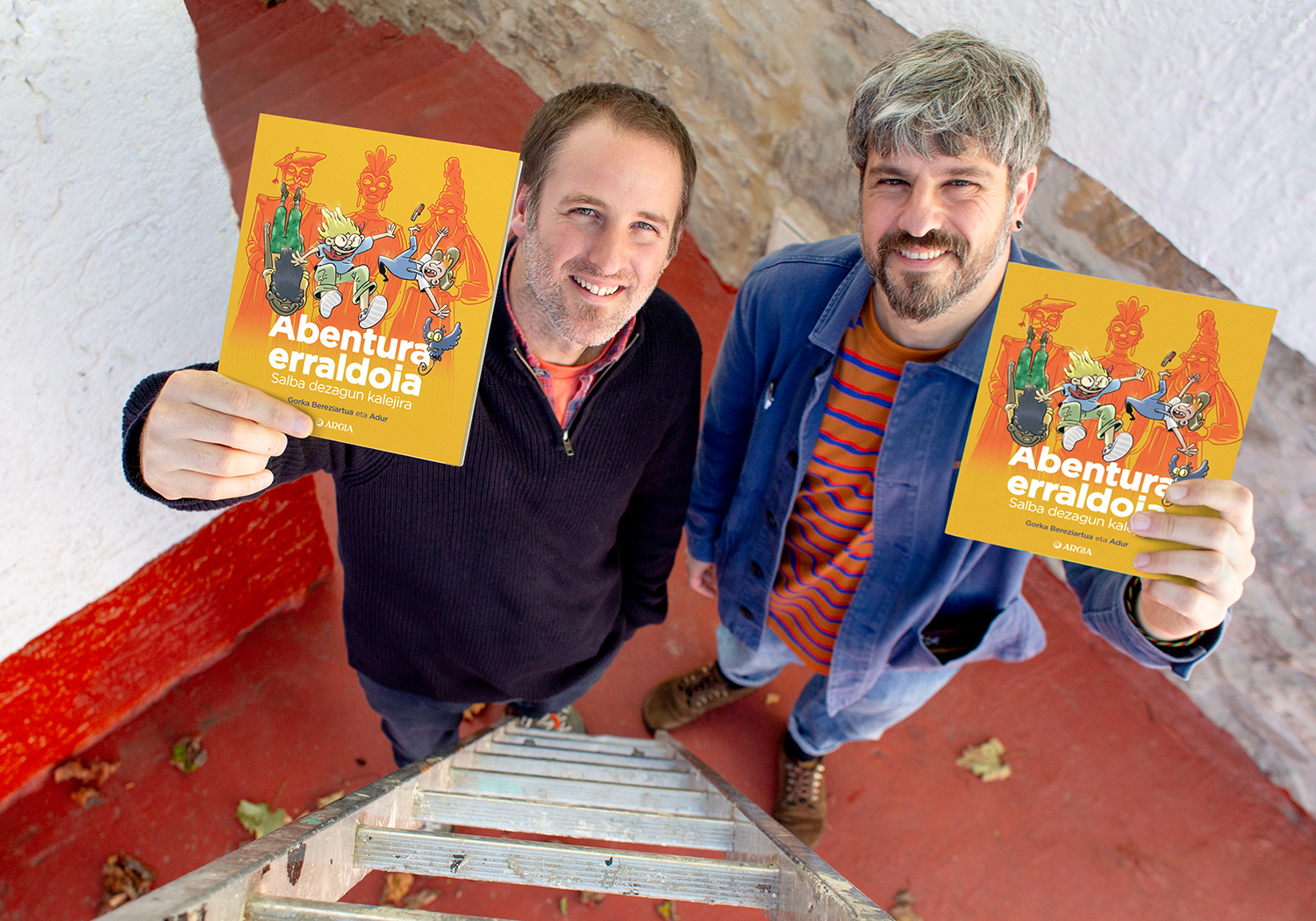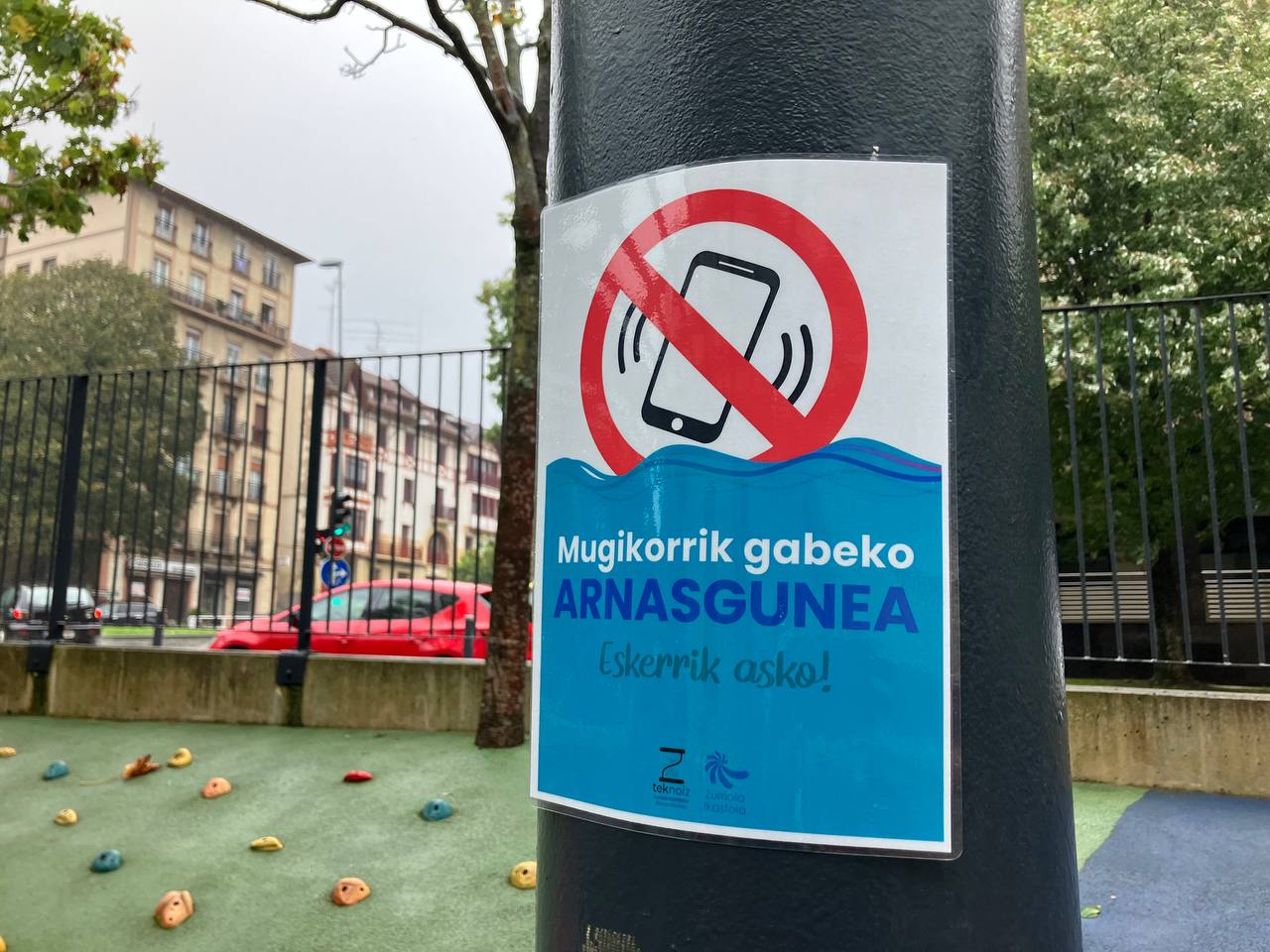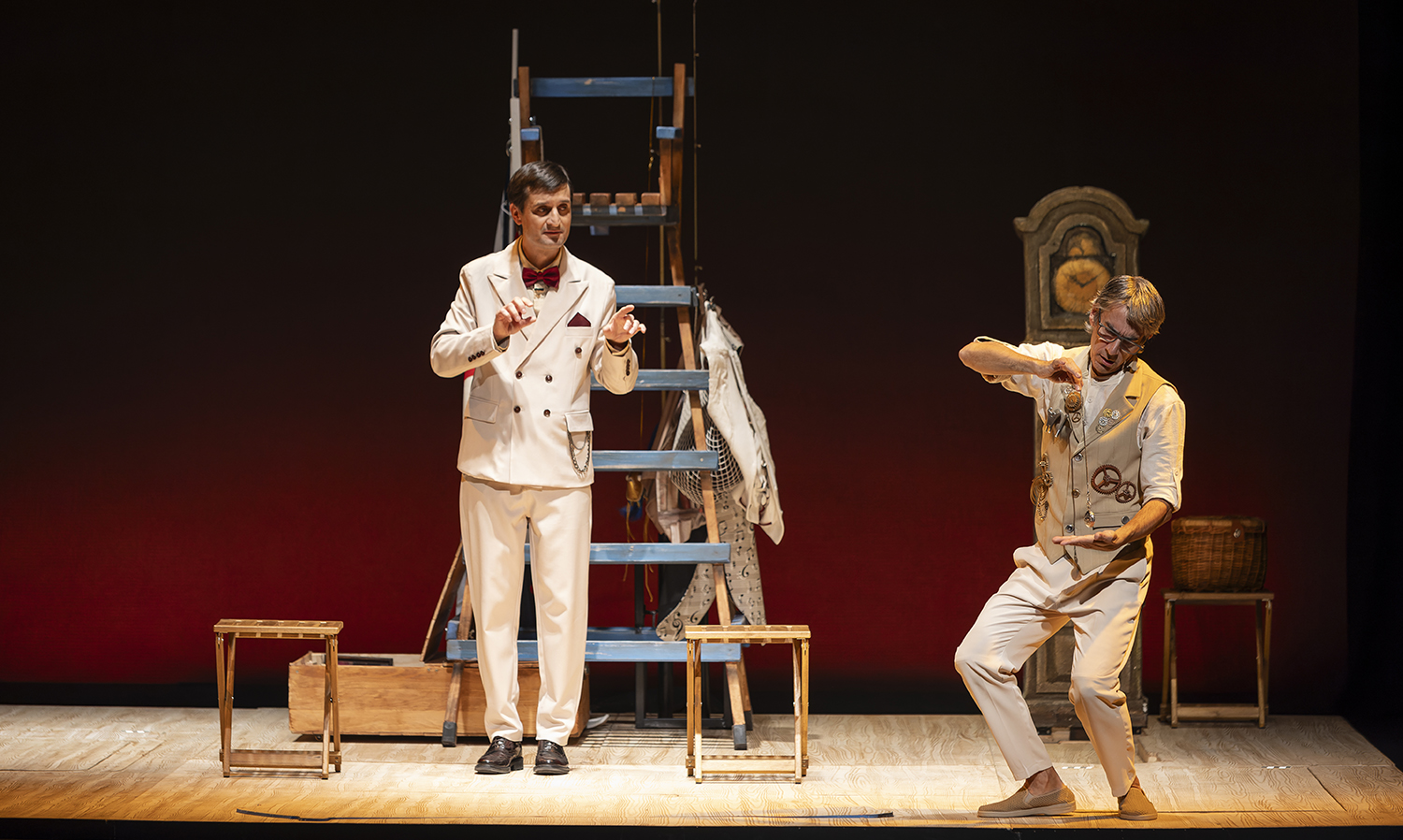"For children, it takes nurturing that reconciles us with our nature."
- Another world is possible, but to do so it is essential to change the forms of education.
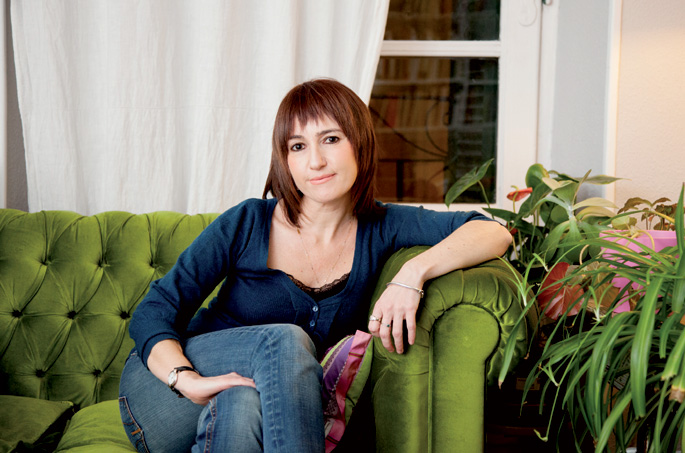
You lead two courses that question today’s modes of education: one aimed at teachers and another at child psychology for parents.
UEU has committed itself to these two courses and people are responding very well. We have done them several times and in the next few weeks we will start them again in Eibar and Pamplona. In July we will also be in the meetings of the Hik Hasi association. What we feel is that people are anxious to have different keys. To know what are the keys to human development.
How did he get to this camp?
I studied Basque Philology because I have been very motivated and concerned about the Basque Country and the Basque Country since I was young. Later, I also became a fan of psychology and pedagogy, and I was trained to be a psychotherapist in Reichia Therapy in Spain. At first I didn't find much sense in this leap from philology to psychology, but now I've realized they're not that far away. I love language, literature and psychology, the things that are very human, the three. What I like is understanding the human being.
You are a professor of model A at the Instituto Público de Barañáin. How are you?
Professionally, I find it more enriching to help deepen the knowledge of the language, but Model A also has other attractions. Since Euskera is considered a Maria subject, nobody asks you for results and you can do with the students whatever you want, with all the good that it can have. You are not as in many other subjects, you can be so dependent on the program and pedagogically very different. I have very good students and I love to see how they motivate themselves with the Basque. Although they are Navarros, they are not considered Euskaldunes, but Spaniards, and some find it strange that I, being Navarro, be Euskaldun, imagine… My goal is to convey to them our nice reference, to give them access to our language, culture and identity.
Basques and Castellanoparlantes live together, but behind their backs.
Vasco-speakers and Castellanos. We are a dominated people and this happens in all the dominated peoples. Now in our environment, subordination is called “plurality.” Our people live under a regime of occupation and, as the conflict is mistaken, we are not managing the situation well. It is a disease of the colonized peoples not to see the state of domination. We have complexes, in the constant search for the approval of the dominator… As a people, I am very interested in investigating the functioning of the syndrome that underlies there psychologically. In many other situations of dependency, as in the case of battered women, dependents forget their dependency status and consider their situation normal. Dependence is pathological. It has enough strength to get rid of the one it dominates. But it's not an option.
You focus on the prevention of neurosis. What is neurosis?
We should not confuse normality and health. Normal is the statistical mean, but our normality has gaps. Everything goes well until it stops going well. There are depressions, anxiety, suicides, malice, harassment… That is our normalcy. Western society is sick. There is an immense lack of satisfaction with life, an immense lack of “happiness”. It's a detail that would surprise, for example, how small the number of people who sleep without taking a medication is.
How have we come to this situation?
The search for the answer is inevitable in childhood. Human beings, like any other animal, come to the world with enormous potential, with a capacity for integral development and health, but we find education, which has the function of modeling the person based on different interests. It is believed that the child does not know what he wants or needs and that the way to maturity must be taught from the outside. And it's not. All being implies wisdom to develop as being mature. Ability to know your needs, manage them and request them. How is it possible to think that you have to teach a child to sleep or to eat if they're instinctive things? What we have to do is develop empathy, feel the child and give him what he needs. We do not have enough confidence in nature, because we are creatures of our education and therefore, we have long been disconnected from our naturaleza.En the process of psycho-affective development
there are several delicate stages that have to be taken care of. When a stage is satisfied, in itself, the impulse of life leads to the next one, without forcing anything from outside. At each stage there is a potential for some achievements towards maturity. If we go through this phase without satisfying it or forcing the pace, it will not be achieved.
Is there a particularly sensitive phase?
In our species, we are born very immature due to brain development. If we wait in the womb until the brain fully develops, the child will not pass through his mother's pelvis. We therefore need external management, almost annual. It's a very careful, very delicate moment, in which the keys are the same as in pregnancy. Especially in the first six months, the child does not feel separated from his mother, but rather a kind of prolongation of the same. Here, long and early distinctions can be serious. It is important to know what a child can be asked for at all times and what not, although taking into account the clues given to us by nature, nobody should remember it. Because if the child were willing to separate from his mother, nature would give him the ability to walk. And you don't give it until it's a little over a year ago. Because she has to be glued to her mother. Bringing children to school for the first six months, for example, is nothing good.
But many times there is no choice but to go back to work.
We do things the best we can and there are mothers who want or need to go back to work and that's why they don't have to feel bad. But if at that time we are well aware of the nature of the child's moment, we can look for a solution that does not harm the child and takes into account the mother, of course.
Are we delegating child care to children's schools?
What surprises me is that in any state, not even the most progressive groups question it. The most revolutionary demand is for children’s schools to be for everyone, although as a prevention system we do not need children’s schools, but longer maternity leave. In addition, the prevention of comprehensive health has a very good economic result, without which the outbreaks generate great expenses. In northern Europe they do so in a different way and we should socially recognise the prophylactic work that can be done with the more natural upbringing of children.
What is the main consequence of not respecting these stages?
When the pace of development and the process of the child are violated, the child is restrained. Often too early and too violent. This shell can be very hard or more flexible, but anyway, you become your slave. That is the character we create to defend ourselves from a system that we did not like. Hence the neurosis. Or more serious things.
And does that happen to us all?
Yes. When a woman decides to have a child, since she may have buried contact with her instinct, she does not have too much confidence in her maternal capacity, and before continuing with her, she prefers to ask the professionals. This mother should be helped to find her mammalian instinct, which is the most sincere way to know how to raise her offspring. Instead of educating children, we should grow, like all other mammals do. If a mother feels that the child cries, she will feel instinctively wanting to take it in her arms. And if you don't, it's because someone told you that you shouldn't do that. As a society, I would say it is notorious that they have not been satisfied with this first phase, that of the voice. It's something that you see socially. We have a big hole there. Many of the problems of dependence that appear in adulthood originate from this fact. Drugs, drink, consumerism… Absorbing is the path of energy regulation of a child, and there are also many associated psychological achievements, such as feeling that the world is nice and trusting in it. It would be good to socially ensure that you can have the mother's chest whenever you want, at least during the first year. Some people think that if you let a child breastfeed as long as he wants, he'll stay there, but it's the opposite. Dissatisfaction is what makes the stage fixed. The WHO recommends only six months with breast and up to two years by hand.
Why do you say that our relationships with children are often violent?
Our society, through the family and the school, continually puts the child and the girl in demands against her own nature. A school that doesn't let it scream or move a lot, for example, is violent with the child because to give it what it is asked for it has to make a great effort against its nature. In addition to the basic needs of food and care the child has, he also has other biological, emotional and affective needs. All of them are unquestionable, because we talk about physical and psychological development. If these needs are not met, they will also appear in due course, and then we try to compensate them in another way, materially in many cases.
Do we live in a neurotic society?
We differentiate the ‘I’, that way of being that a child brings by itself, the imprint and character. The latter is neurosis, character is the set of strategies that must be developed to adapt to the strong system in its development. This is always less than me, more limited. It leads us to always have to function automatically and uniformly, and we think that's our way of being. There are, of course, firmer and more flexible. As in neuroses there are also degrees, and you can get psychopathology or not. The pathologies treated in the clinic are increasingly serious, as the profile of the normal human being is increasingly immature. Hard or hard, but very fragile. The goal of prevention would be to create identities with a strong, flexible ‘self’ in their functioning, which have not had to be overridden or overridden. The goal is not to grow children who have no problems, but are strong people, who do not break easily. The objective is self-regulation, not the regulation of socialization. To be able to live following your internal beat and not too adapted to the normative functioning needs imposed by external bodies.
Youth is present in our society.
Yes, and supposed autonomy. In our society we do not take the needs of others well. We do not accept children, the elderly, the invalids well... It is a paradox, but at a time when the dependent person has a real meaning, that is, in the first years, we hasten the person to achieve a certain autonomy and we do not realize that we are doing the opposite. That's where the origin of psychological dependence lies. We're stealing children from the time of having children.
Ane Ablanedo Larrion (Iruñea, 1973ko maiatzak 18). Psikoterapian eta neurosiaren prebentzioan aditua. Bigarren Hezkuntzako euskara eta literatura irakaslea, Nafarroako Unibertsitate Publikoko irakasle laguntzailea, idazlea eta politikazalea, besteak beste. UEUren eskutik Hezkuntza sistema alternatiboak eta Haur psikologia ikastaro arrakastatsuetako arduraduna da.
“Gurasoen presentzia afektiboa funtsezkoa da haurtzaroan. Hori da umeak daukan modu bakarra jakiteko maite duzun edo ez. Ume bat ez baduzu asko ukitzen, besotan hartzen, laztantzen, maitasun ukigairik ez badiozu helarazten berak ezin du jakin maite duzunik. Haurrekin egon beharra dago, jolastu, hitz egin, bizi… Gainera haur eta gazteekin egotea oparia da, haur bat hazten laguntzea ikaragarria da”.
“Inauste, moldatze, hezitze edo fabrikatze prozesu horretan haur bati eragiten zaion mina zuzenean proporzionala zaio sistemak horri ateratzen dion etekinari. Zenbat eta muga gehiago jarri haur bati bere garapen potentzial horretan, orduan eta indartsuagoa ateratzen da sistema, pertsona otzanak egiten ari duelako”.
“Haurrenganako gure harremanetan boterekeria handia dago. Ume bat ezin da errebelatu aita edo amaren aurka. Haien beharra duelako. Etsipen hori barnean gelditzen denean amorrua sortzen zaio eta bere berdinekin errepikatuko du eredua. Jotzen duen ume bat, joa izan dena bezain biktima da”.
“Gure herria gauza askotan aitzindaria izan da. Pedagogian ere ikastolak izan ziren 60ko hamarkadan berritasunak gurera ekartzen lehenak. Gainera gure tradizioagatik eta dugun talde edo tribu kontzientziagatik baditugu ezaugarri batzuk diskurtso honetarako erreskatatu genitzakeenak. Baina biziko bada, gure herriak independentzia behar du bere baliabideak baliatu eta kudeatu ahal izateko. Ez da aukera bat, beharra baizik. Ez dugu erabaki behar garen edo ez. Bagara. Eta bagarelako, askatasuna eta independentzia dagozkigu. Zergatik LOMCEren aurka borrokatu? LOGSE edo LOE hobeak ziren guretzat, ala? Borrokatu hezkuntza sistema propioaren alde, independentziaren alde. Kataluniak krisia aprobetxatu du independentzia beharraren pedagogia egiteko, gure ustezko politikariak Espainiako presidenteari krisia kudeatzen laguntzen saiatzen diren bitartean. Funtzionamendu hori, herri menderatu gaixoen baitan baino ezin da ulertu. Herri honek sekulako gaitasuna eta bizitasuna du, baina ideologia propioaren beharra du eta ez daki politika egiten. Iruditzen zaio politika negoziatzea edo aurkaria liluratzea dela, eta ez da hori. Indar erlazioa da”.
Today, the voices of women and children remain within a culture that delegitimizes their voices, silencing their experiences, within a system aimed at minimizing or ignoring their basic rights and needs. A media example of this problem is the case of Juana Rivas, but her story... [+]











